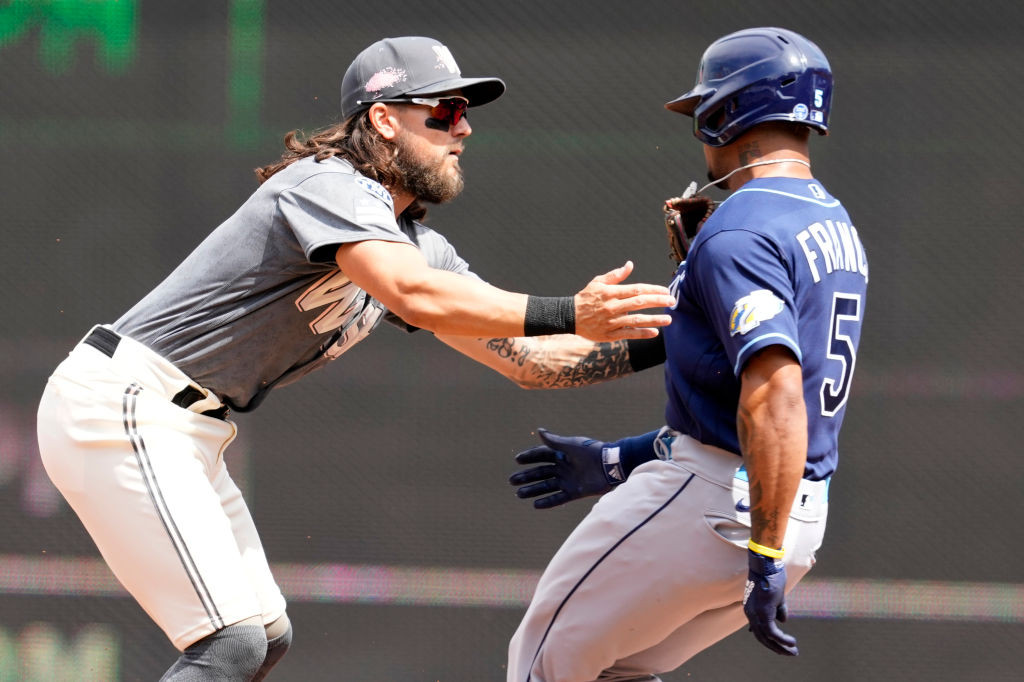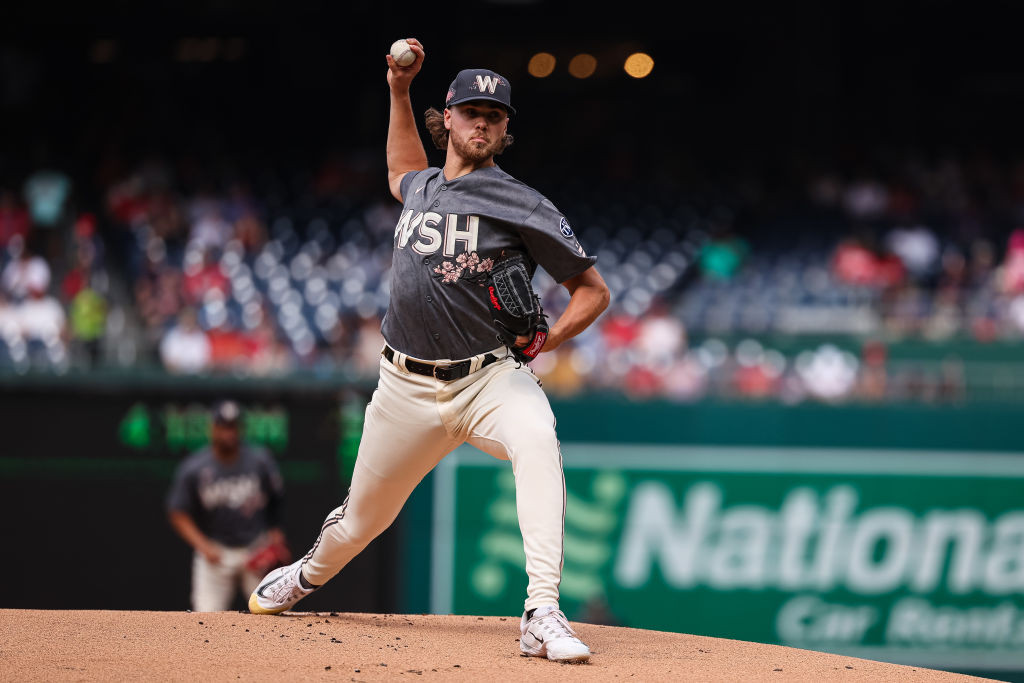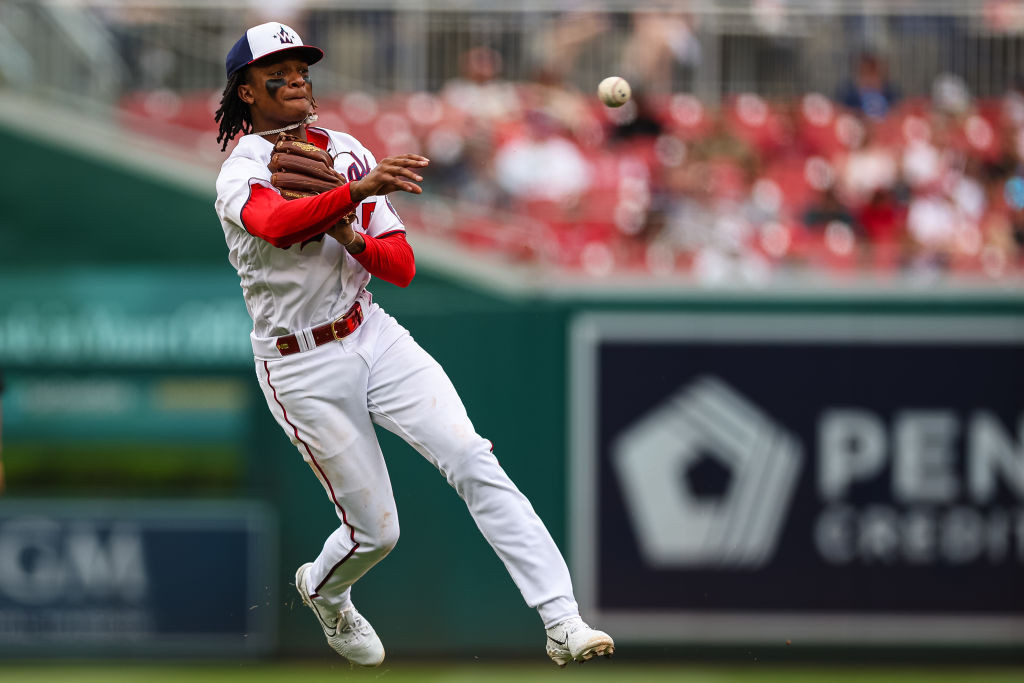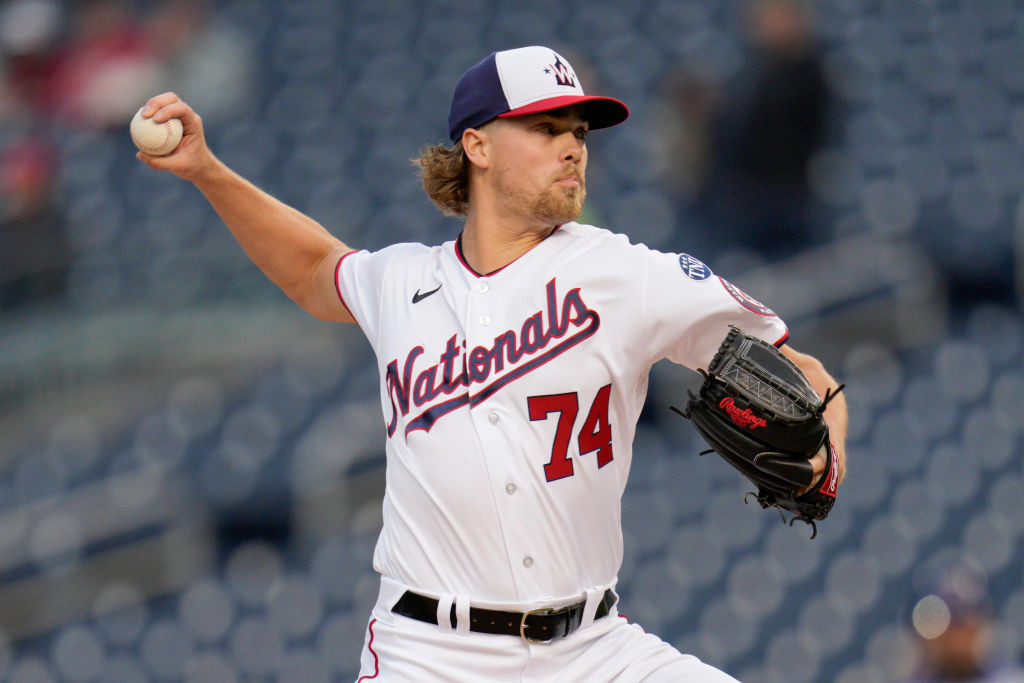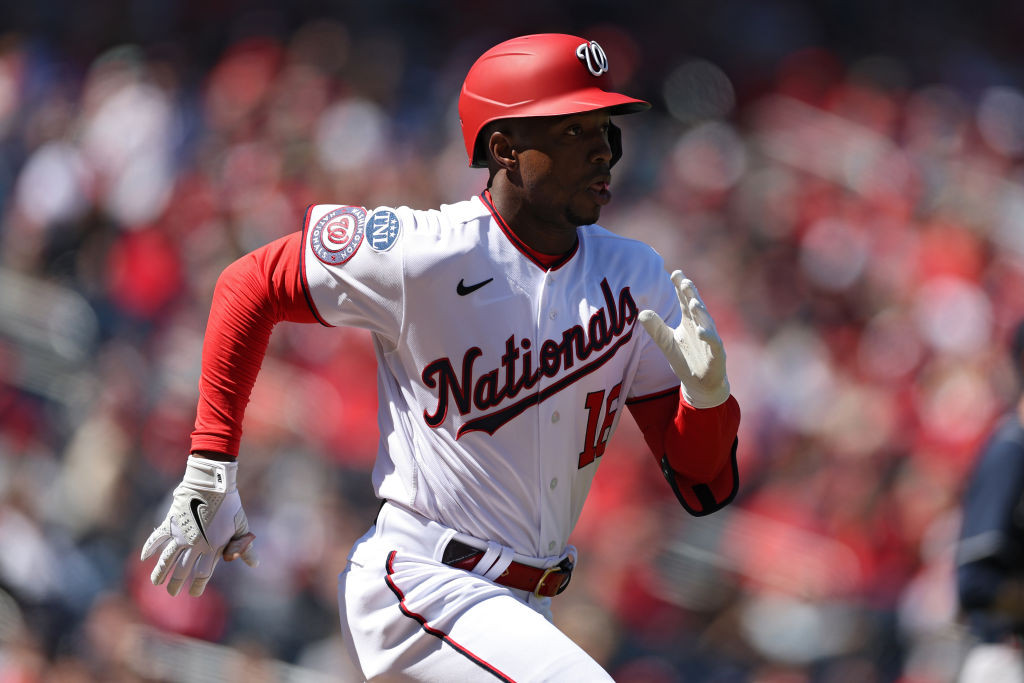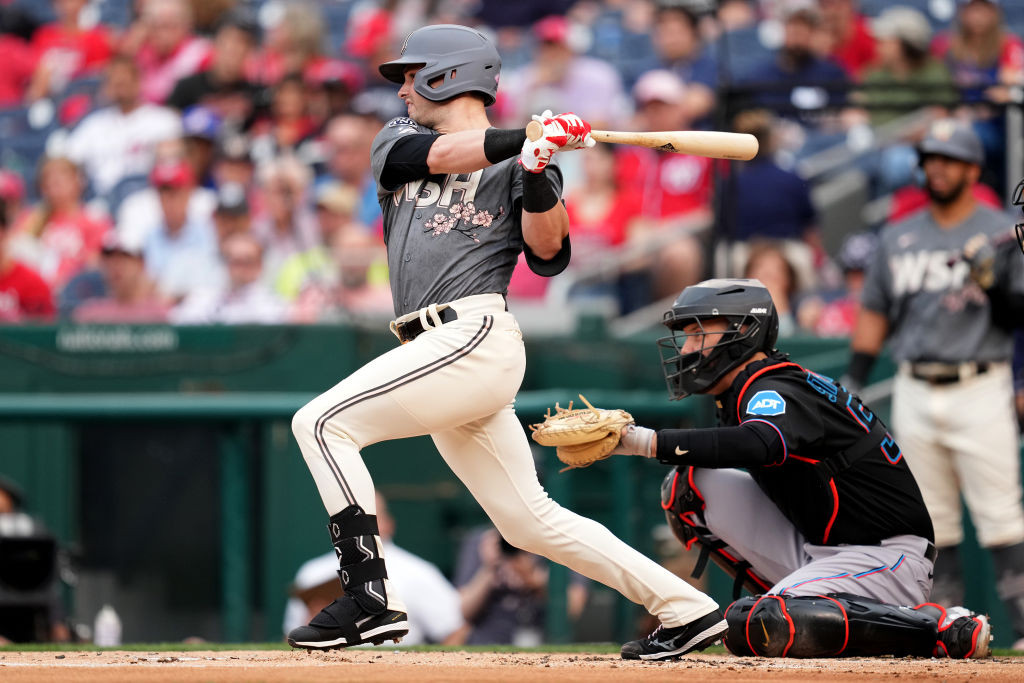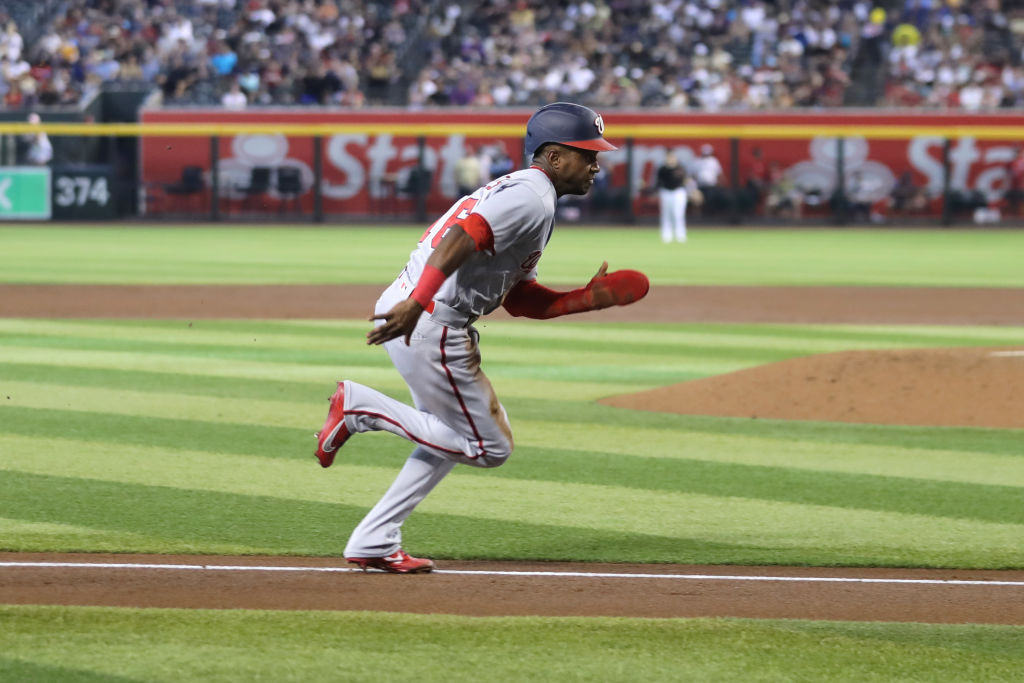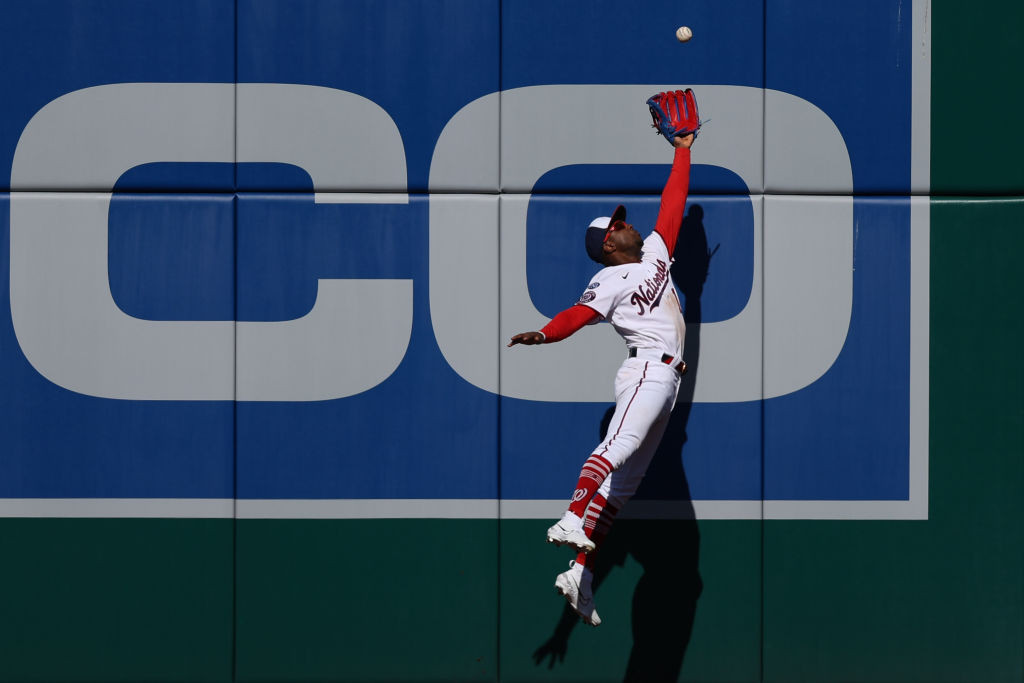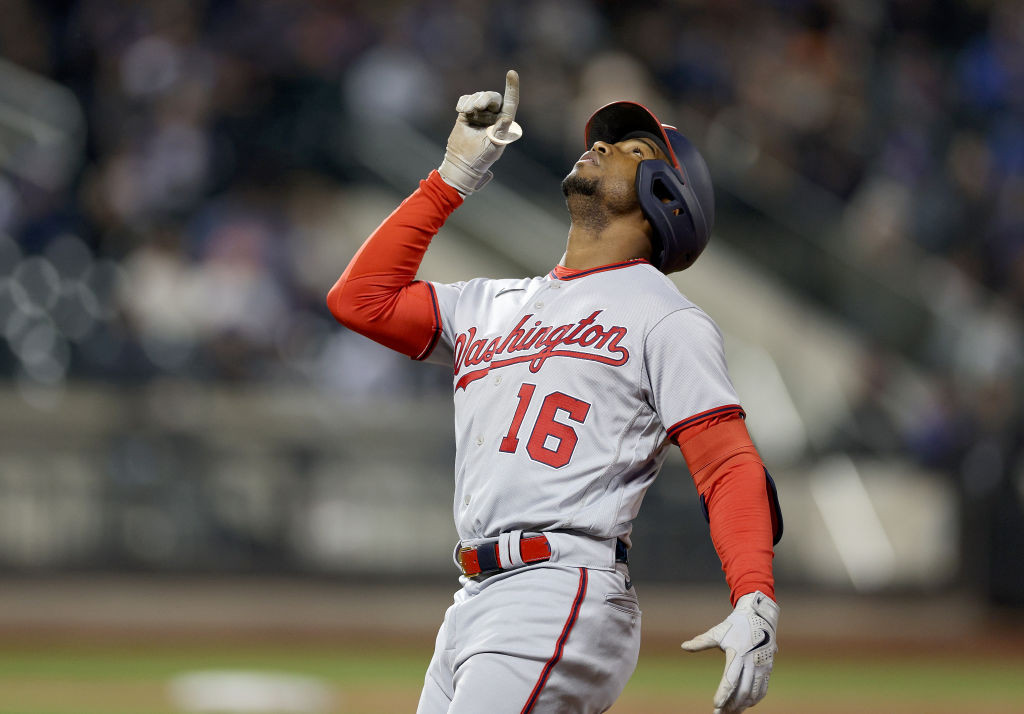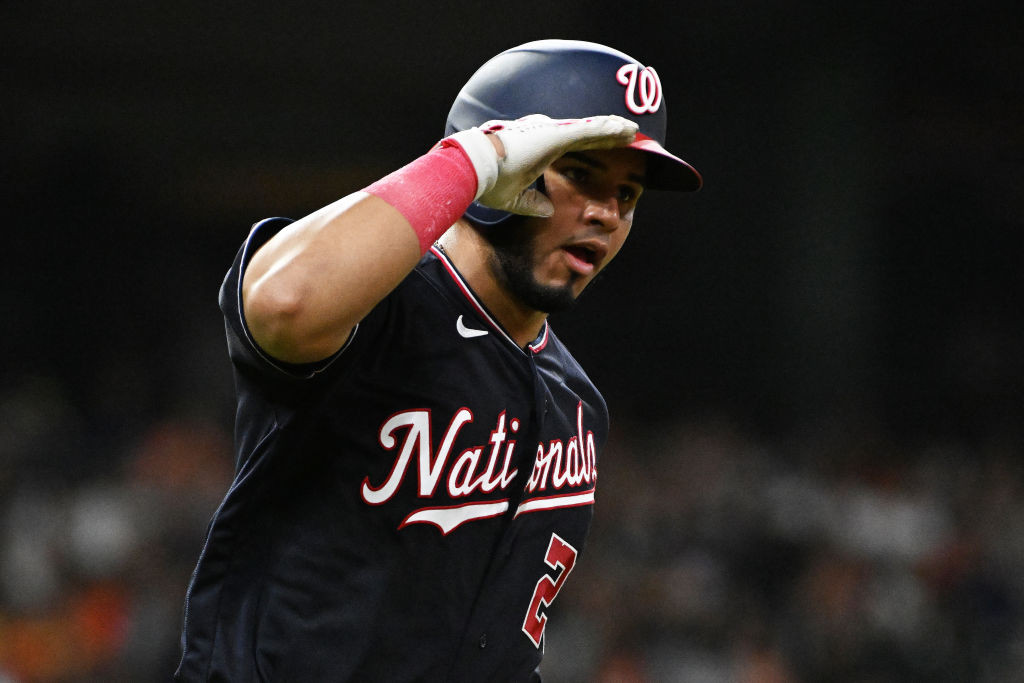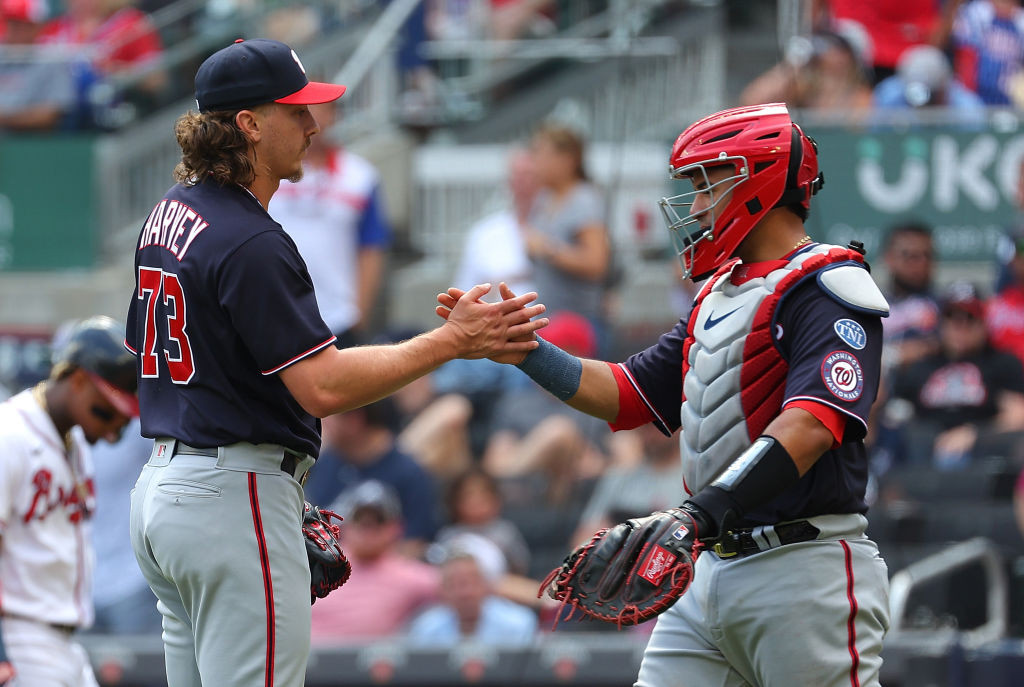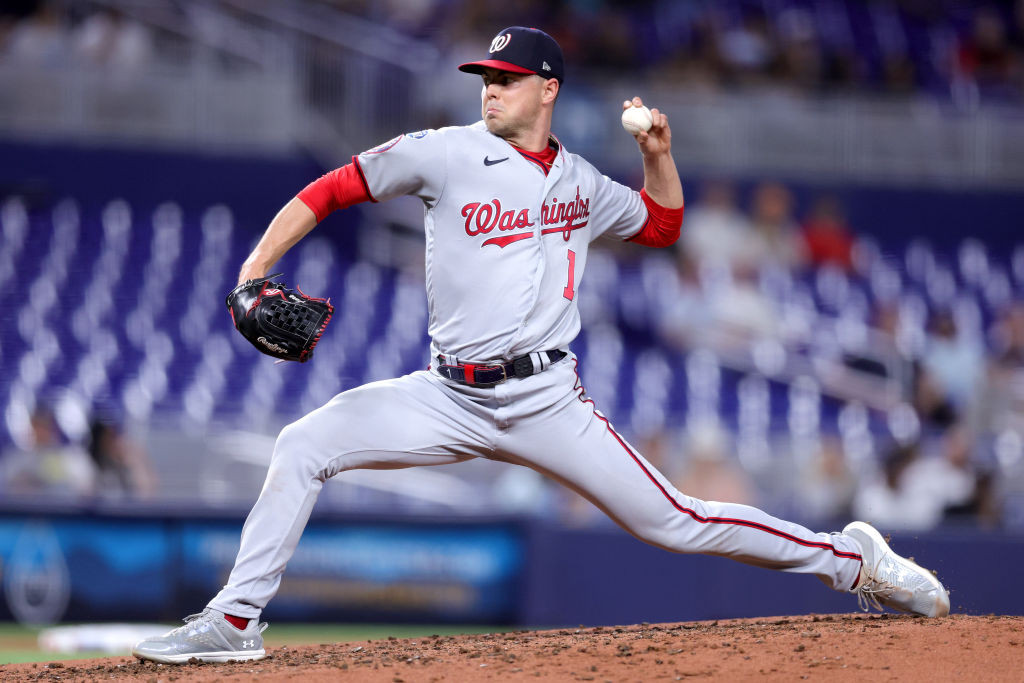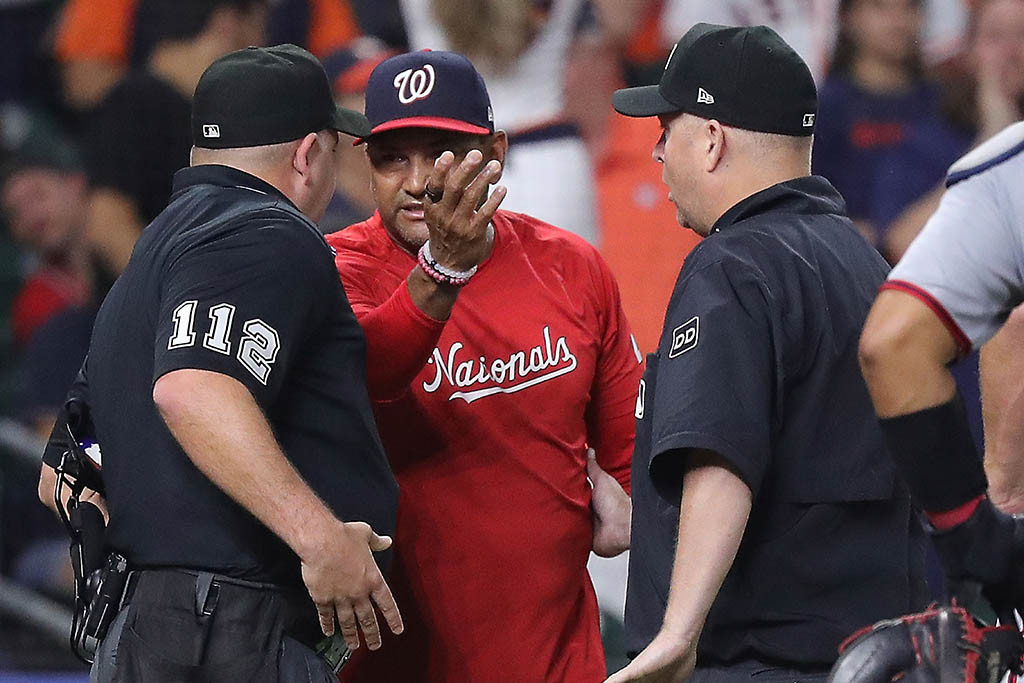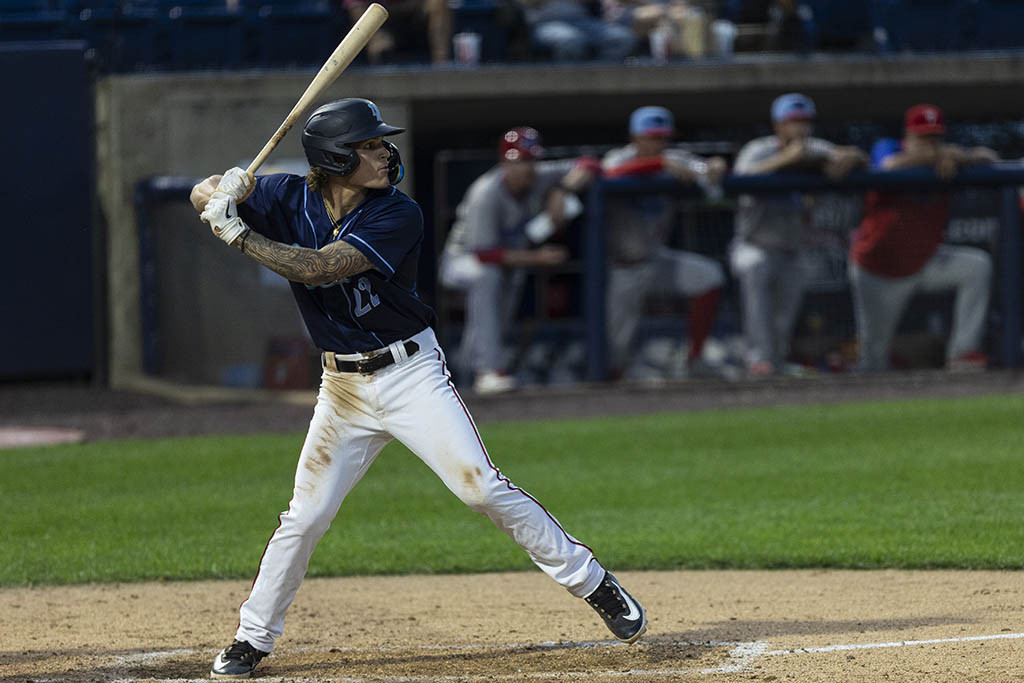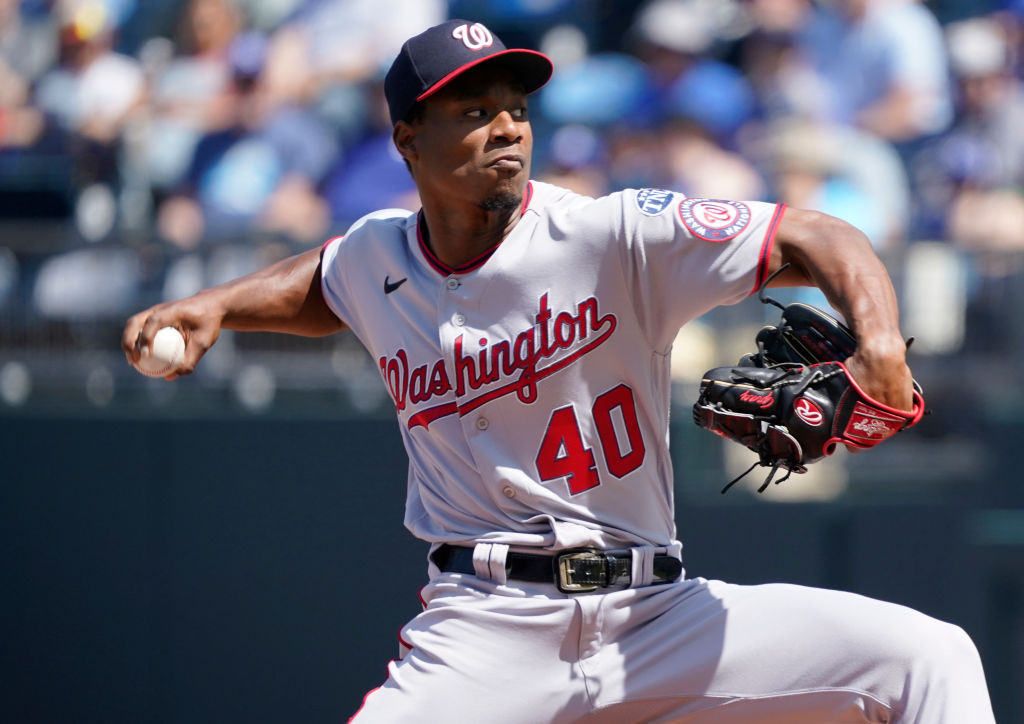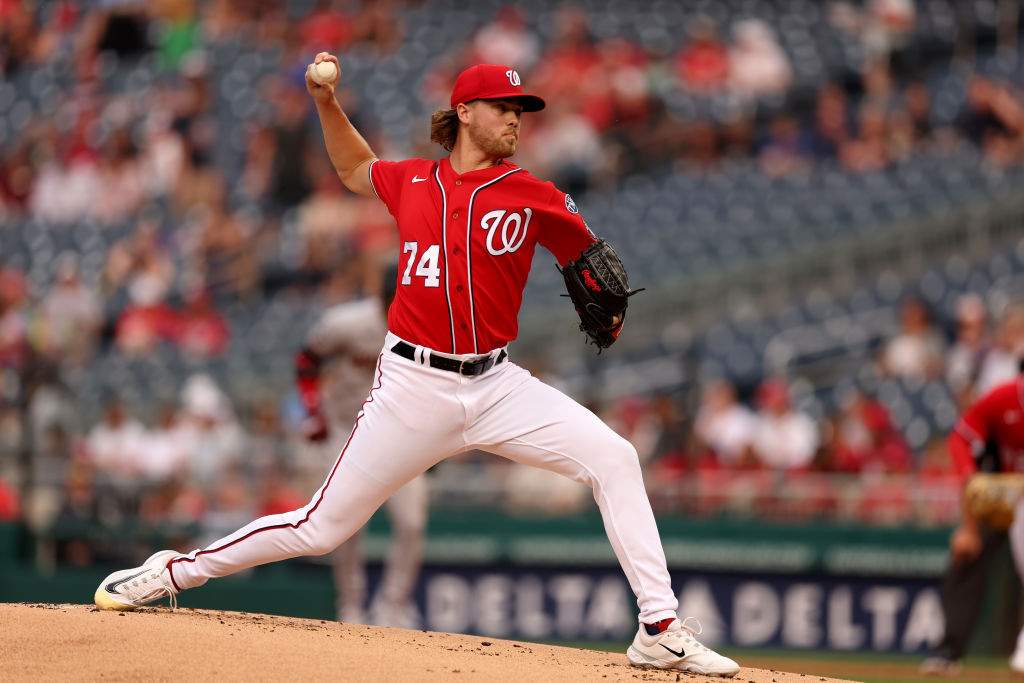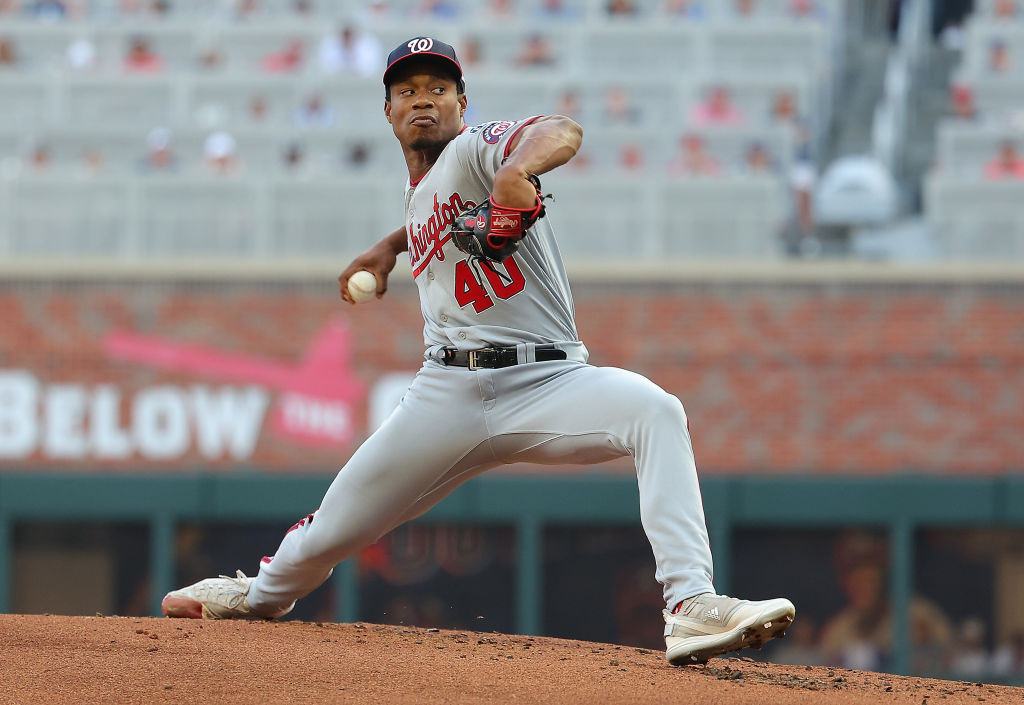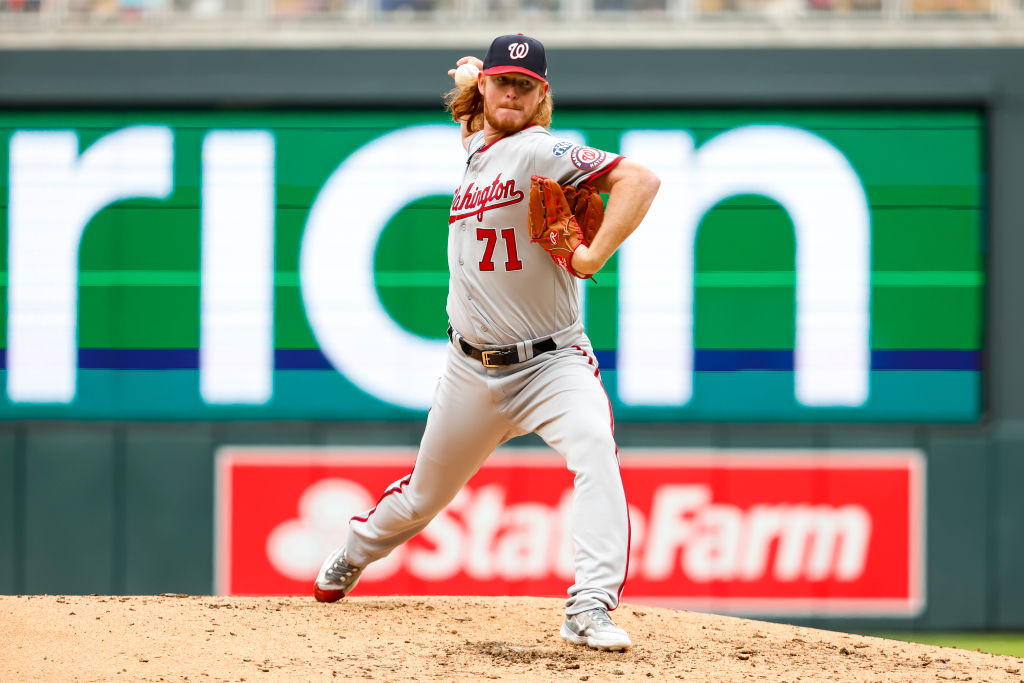The Nationals keep finding themselves in this position, needing a win to avoid a series sweep. This is actually the fifth time in their last six series they’ve lost the opening two games to an opponent. In three of the previous cases (Dodgers, Braves, Astros) they found a way to salvage a win in the finale. They never had a chance to do it in the fourth series, because the finale against the Diamondbacks was postponed due to hazardous air quality. (We’ll see how Thursday’s makeup game shakes out.)
So if the pattern holds true, the Nats will actually beat the Marlins this afternoon and avoid the sweep. Then again, they still haven’t beaten the Marlins this season in five tries, having been swept in Miami last month and now finding themselves in danger of it happening again today.
We’ve talked a lot about pitching throughout this rough stretch, but let’s not give the lineup a free pass. The Nationals have averaged only 3.3 runs, 8.2 hits and a paltry 1.4 walks over their last 12 games (of which they’ve won only two). So they’ve got to do a better job making Jesús Luzardo work today. The long-ago Nats prospect continues to be an enigma: Over his last six starts, he’s alternated between allowing five or more runs or only one run (including once against the Nats).
Patrick Corbin gets the start on the other side. He was solid against the Astros, allowing only two runs over five innings, though he did issue a whopping five walks. If he can hold Miami in check, Davey Martinez should be able to turn to his top relievers today.
Update: Jeimer Candelario was a late scratch from the lineup for undisclosed reasons. Michael Chavis will slide over to third base, and Dominic Smith (who was supposed to sit today) will start at first base.
It takes a lot for the Nationals to beat the Marlins these days. Actually, no one can say for sure what it takes to beat the Marlins this season, because they’ve now had five opportunities to do it and have yet to emerge victorious.
You would think, though, most paths to success would include clutch hitting and quality relief pitching. The Nats got neither of those during today’s frustrating 5-2 loss to Miami.
A lineup that gave itself only a few chances to drive in runs did so only twice, stranding a runner in scoring position in three different innings. And Davey Martinez, whose bullpen was without the services of several arms typically used in high-leverage spots, watched as failed starter-turned-reliever Chad Kuhl made a mess of the decisive seventh inning and Rule 5 pick Thaddeus Ward surrendered two big insurance runs in the top of the ninth to put the game out of reach.
So it was the Nationals lost yet again to their plucky division rivals from South Beach. They are now 0-5 against them this season despite being outscored by only eight runs in total. And they’re an unfathomable 4-20 dating back to the start of the 2022 season.
"The thing is, it's almost like we've got to play perfectly," Martinez said. "And that's tough to do every night. If we don't chase, do some other things, the outcome might be a little better. We've got to keep playing hard. Get on base for the next guy. When we do that, we actually score a few runs."
When looking for reasons to explain the Nationals’ more competitive play early this season, it was easy to point to the club’s improved defense as a significant factor.
After rating as the majors’ worst defensive team in 2022, the Nats ended April ranked 22nd with minus-4 Defensive Runs Saved. That’s far from excellent play in the field, but it did represent real improvement from the previous year.
When they take the field this afternoon, though, the Nationals find themselves back at the bottom of the list. They entered the day with minus-29 DRS, tied with the Athletics for worst in the sport.
Defensive metrics, of course, remain far from a perfect measurement of actual defensive play. But the eye test also seems to suggest the team’s performance has regressed in this area over the last month or so.
“I still feel like we’re playing pretty good defense,” manager Davey Martinez insisted today. “Look, you’ve got to remember we’ve got two guys that are really young in the middle of the field, and it’s going to be part of the process. But I think overall they’re doing well.”
The Nationals, as you may have heard by now, just can’t beat the Marlins. Friday night’s 6-5 loss left them 0-4 this season against Miami and a staggering 4-19 over the last two seasons. How is that possible? Credit to the Marlins, who to be sure are an improved team with a good pitching staff. But that’s an absurd winning percentage against any opponent, no matter how good.
The Nats will try to reverse that trend this afternoon in the second game of the weekend series. They’ll have Jake Irvin back on the mound after a 10-day layoff. Thanks to an off-day at the beginning of the week, the team decided to skip over Irvin’s turn in the rotation and give the rookie a chance to rest and work on some things in the bullpen. He was quite excited about the way his last throwing session went. We’ll see if that actually translates into positive results in today’s game.
The Marlins send left-hander Braxton Garrett to the mound, so Davey Martinez has his right-handed-heavy lineup in there. That includes Stone Garrett, now officially part of a left field platoon with Corey Dickerson. And it includes Riley Adams, who gets the start behind the plate while Keibert Ruiz gets the day off.
WASHINGTON NATIONALS vs. MIAMI MARLINS
Where: Nationals Park
Gametime: 4:05 p.m. EDT
TV: MASN, MLB.tv
Radio: 106.7 FM, MLB.com
Weather: Partly cloudy, 82 degrees, wind 16 mph in from left field
NATIONALS
RF Lane Thomas
2B Luis García
3B Jeimer Candelario
DH Joey Meneses
LF Stone Garrett
1B Dominic Smith
C Riley Adams
CF Victor Robles
SS CJ Abrams
After missing 33 games, Victor Robles finally returned to the Nationals lineup last night.
Before the series opener against the Marlins, a 6-5 loss, the Nationals returned Robles from his rehab assignment and reinstated him from the 10-day injured list while optioning Alex Call down to Triple-A Rochester. Robles had been on the IL since May 8 with what the team originally called back spasms.
But it turned out to be a slightly more serious back injury that kept him sidelined for over a month.
“When I first hit the injured list, the biggest thing I was very frustrated,” Robles said via interpreter Octavio Martinez. “Frustrated with the fact that I wasn't able to swing. I felt like my back was real tight and it made me immobile a little bit. But with the hard work of our trainers here, they've done a great job of trying to get me back on the field. And I still feel it a little bit running, but overall I feel good swinging the bat.”
He had no problem swinging the bat before the injury, hitting .292 with four doubles, a triple, eight RBIs, 10 walks, 13 runs and eight stolen bases in 31 games to start the season. And he picked up right where he left off when he was finally able to start a rehab assignment with Rochester, reaching base in all four games and going 4-for-7 (.571) with a double, two home runs, five RBIs, a walk and five runs scored in his final two outings with the Red Wings.
The Nationals came into this weekend’s three-game series against the Marlins needing to find some way to beat their divisional foes.
Entering tonight, the Nats were 4-18 with a -41 run differential against the Fish since the start of last season. They played tight but were ultimately swept out of Miami last month, losing all three games by a total of four runs.
The Marlins aren’t world-beaters. Although they began the night in second place in the National League East, they had a -30 run differential on the year.
That ever so slightly improved tonight as did their record against the Nats. Despite another hard-fought game, the Nationals dropped the series opener 6-5 in front of an announced crowd of 22,379 at Nats Park, with the Marlins improving to 18-5 in one-run games already this season.
“We were down. We got a good pitcher in there. We come back," manager Davey Martinez said after the loss. "Score some runs early and then the bats, we had a couple of opportunities to score again. We just couldn't capitalize. And then big moment, ball up the middle. I think that inning really started with the walk. We always talk about not walking guys because, especially early in innings, it's gonna bite you. But overall, I thought you know we did well, we played well, we came back, we kept coming back. We just couldn't score any runs at the end.”
Victor Robles walked into the Nationals clubhouse with a little more hop in his step than he had over the past month-plus. He wasn’t very mobile or flexible while dealing with a back injury that had him on the 10-day injured list since May 8.
Robles was back to his energetic self today because he was returned from his rehab assignment and reinstated to the active roster this afternoon, while Alex Call was optioned to Triple-A Rochester in a corresponding move.
“We made a move today before the game,” manager Davey Martinez said to open his pregame media session ahead of tonight’s opener against the Marlins. “Victor is back with us. He checked all the boxes down there. He feels really good. So we optioned Call down. Look, I can't say enough about Alex. He played unbelievable defense for us. He was out there every day. He's an unbelievable competitor, a good teammate. We want to send him down and kind of get his swing straightened out a little bit. I don't think it'll be the last you've seen of Alex. But he was struggling a little bit with the bat. So we get Victor back. He was swinging the bat really well before he got hurt. So hopefully he'll jump-start us again.”
Robles was off to a good start to the season, hitting .292 with four doubles, a triple, eight RBIs, 10 walks, 13 runs and eight stolen bases in 31 games before he was placed on the IL. And he continued that success in his rehab in Rochester, reaching base in all four games and going 4-for-7 (.571) with a double, two home runs, five RBIs, a walk and five runs scored in his final two outings with the Red Wings.
The 26-year-old is back in center field and batting eighth tonight as the Nats face reigning National League Cy Young Award winner Sandy Alcantara. But even as he’s thrust back into the starting lineup, the Nats will continue to monitor how his back is feeling.
After a 2-4 road trip, the Nationals have lost five straight series, all coming against tough opponents. And depending on how you view the Marlins, another one is on deck this weekend.
The Fish are 38-31 and in second place in the National League East, but have the second-worst run differential in the division at -30. Their bread and butter is one-run games in which they are a stunning 17-5, including two out of the three games they won against the Nats in May.
Of course, the Nats have struggled against the Marlins for a while. They are 4-18 against their division rivals since the start of last year.
Trevor Williams gets the start in tonight’s opener. The right-hander is 3-4 with a 4.11 ERA and 1.355 WHIP in his first 13 starts. He has set season highs with six strikeouts in back-to-back outings and turned in a quality start against the Marlins the last time these two teams met.
Sandy Alcantara gets the call for the Fish. The reigning NL Cy Young Award winner has not put up the kind of numbers we’re used to seeing from the right-hander, going only 2-5 with a 4.75 ERA on the year. But he did hold the White Sox to one run over seven innings in his last start.
The Washington Nationals returned from rehab and reinstated outfielder Victor Robles from the 10-day Injured List and optioned outfielder Alex Call to Triple-A Rochester on Friday. Nationals President of Baseball Operations and General Manager Mike Rizzo made the announcement.
Robles, 26, hit .292 with four doubles, a triple, eight RBI, 10 walks, 13 runs and eight stolen bases in 31 games this season before he was placed on the Injured List with back spasms on May 8. While making his way back from the injury, he reached base in all four rehab games he played in for Triple-A Rochester. Robles went 4-for-7 (.571) with a double, two home runs, five RBI, a walk and five runs scored in his final two games for the Red Wings.
A veteran of parts of seven Major League seasons, Robles is a career .237 hitter with 77 doubles, 11 triples, 31 home runs, 154 RBI, 108 walks, 208 runs and 66 stolen bases. He is a two-time Rawlings Gold Glove finalist (2019, 2022) and led National League center fielders in defensive runs saved (12) last season according to FanGraphs.com.
Call, 28, hit .209 with three home runs, nine doubles, 20 RBI, 26 walks, 24 runs and six stolen bases in 64 games for the Nationals this season.
Please see the attached document the updated 26-man roster.
Following a six-game road trip, the Washington Nationals return home for two three-game sets against the Miami Marlins and St. Louis Cardinals, and one rescheduled game against the Arizona Diamondbacks. Single-game tickets for all Nationals home games are on sale now at nats.com/Tickets.
This homestand features several exciting events and promotions, including the first of two Racing Presidents bobblehead giveaways, Juneteenth recognition, Italian Heritage Night, U.S. Army Day, Value Day and more.
As a reminder, if you would like to cover any events at Nationals Park, please contact Valerie Todryk Krebs at This email address is being protected from spambots. You need JavaScript enabled to view it. or Devon Bridges at This email address is being protected from spambots. You need JavaScript enabled to view it. for credentialing information in advance of the event.
FRIDAY, JUNE 16 vs. MIAMI MARLINS (7:05 PM ET)
HOUSTON – It seems hard to believe given his offensive struggles the last three seasons, but Victor Robles’ pending return should be a real boon to the Nationals’ offensive fortunes.
Robles, out since May 7 with a back injury, appears to be in the final stages of a rehab assignment with Triple-A Rochester and could be activated this weekend, perhaps even in time for tonight’s series opener against the Marlins at Nationals Park.
Will the 26-year-old center fielder with a career .670 OPS really make much positive difference at the plate? If he performs anything like he did prior to suffering the injury while sliding into second base in Arizona, yes.
Robles was making some real strides through the season’s first month-plus. It’s not just his .292 batting average and .388 on-base percentage, impressive as those are. It’s his approach at the plate, a vast improvement from 2020-22.
Robles has always been one of the freest swingers in baseball, often to his detriment. His strikeout rate the last three seasons was a lofty 25.1 percent, his walk rate a scant 6.1 percent that plummeted to 4.2 percent in 2022.
HOUSTON – For 26 innings over three agonizing nights, the Nationals tried like might to hit a baseball high and far at the home run haven that is Minute Maid Park. For 26 innings, they could not get anything to clear the fence.
And then, at last, in the 27th inning of this series against the Astros, Keibert Ruiz finally broke through and delivered the big blast his team had so desired all week.
But because Hunter Harvey couldn't record the 27th out without surrendering the tying run, the series was extended to a 28th inning and the Nats found themselves in extras for the first time this season.
And thanks to some long-awaited offensive execution by several members of the lineup, they emerged at the end of the night with a well-deserved 4-1 victory over the defending World Series champions.
"It always feels good to win," Ruiz said. "I feel really good for the team. We've been playing really good, coming from behind. We lost yesterday, but we've come from behind and we've been playing better. Don't give up, keep the head up and keep playing hard."
HOUSTON – It was easily forgotten, because of what transpired moments later, but prior to the controversial ending of Wednesday night’s game, the Nationals put themselves in an especially disadvantageous position when they allowed Kyle Tucker to steal third off them without even attempting to throw him out.
Tucker, leading off second base with one out in the bottom of the ninth of what was at that point a tie game, took off for third as Hunter Harvey delivered his pitch to the plate and slid in safely as catcher Keibert Ruiz could do nothing but watch from his position.
It may not have mattered, because Harvey proceeded to walk Corey Julks and then surrendered the grounder by Jake Meyers that scored the winning run when Meyers wasn’t called for interfering with Ruiz’s throw to first. But it stuck with manager Davey Martinez, who has grown tired of seeing that type of play happen against his team over and over this season.
“It definitely matters,” Martinez said. “In a situation like that … we’ve got to keep the guy on first base or second base, wherever he may be.”
This has become a disturbing, regular pattern for the Nationals, who enter tonight’s game having surrendered 67 stolen bases (tied for third-most in the majors) while throwing out only 15 runners. The problem is more acute in late innings, with Harvey, Kyle Finnegan, Mason Thompson, Carl Edwards Jr. and Andrés Machado having combined to allow 20-of-22 opposing runners successfully steal of them.
HOUSTON – Tonight is the 15th scheduled game of a stretch that has seen the Nationals play nothing but contenders, including some of the best teams in baseball. It promised to be a difficult stretch, and it most certainly has proven to be that. They enter tonight’s finale at Minute Maid Park with a 3-10 record against the Dodgers, Phillies, Diamondbacks, Braves and Astros. (They of course didn't play one game vs. Arizona due to hazardous air quality in D.C.)
The schedule eases up now, but before that happens the Nats would love to emerge from this series with at least one win over the defending World Series champions. They’ll need to score some runs prior to the top of the ninth, you’d think, but the challenge again isn’t an easy one facing Christian Javier. The 26-year-old right-hander is 7-1 with a 3.13 ERA in 13 starts, though he did give up four runs on seven hits and three walks during a five-inning no-decision against the Guardians last week.
As was the case for Josiah Gray on Wednesday night, MacKenzie Gore faces his own challenge in the form of a potent Houston lineup that gets shortstop Jeremy Peña back tonight. Gore had a rough one in his last start in Atlanta, giving up five runs in five innings, including a pair of homers. He’ll have to keep an Astros team that has launched six homers so far in this series in the park tonight.
WASHINGTON NATIONALS at HOUSTON ASTROS
Where: Minute Maid Park
Gametime: 8:10 p.m. EDT
TV: MASN, MLB.tv
Radio: 106.7 FM, MLB.com
Weather: Indoors
NATIONALS
RF Lane Thomas
2B Luis García
3B Jeimer Candelario
DH Corey Dickerson
C Keibert Ruiz
1B Dominic Smith
LF Stone Garrett
SS CJ Abrams
CF Alex Call
HOUSTON – That tonight's game, with the Nationals back at Minute Maid Park for the first time since the 2019 World Series, would end the way it did defied all common sense and logic. How could the baseball gods concoct such a scenario – a potential obstruction call on a bang-bang play at first base – with a game between these two teams in this ballpark, and have that call yet again go against Davey Martinez's club? Was this some kind of cruel cosmic joke?
It was not. It was all too real, and it cost the Nats in a way none of the previous similar plays that have befallen them did. This one ended the game. This one gave the Astros a 5-4 walk-off victory moments after the visitors had staged a dramatic, three-run rally to tie the game in the top of the ninth.
And this one left Martinez as steamed as he's ever been at the end of a loss.
"I'm over this play!" the sixth-year manager bellowed as he held up a just-printed piece of paper showing a still frame of Houston's Jake Meyers clearly running in fair territory toward first base as catcher Keibert Ruiz prepared to make a throw from the plate that would hit Meyers' helmet and Michael Chavis' glove right as he arrived at the bag. "Seriously, they need to fix the rule. If this is what the umpires see, as he's running down the line? I'm tired of it. I'm tired of it. Fix it! We lost the game, and (plate umpire Jeremy Riggs) had nothing to say about it, because he can't make the right call. Brutal! Brutal!"
In the exact location where Trea Turner infamously was called for obstruction in Game 6 of the World Series, leading to Martinez's ejection, Meyers was not called for it tonight. As the ball squirted away from Chavis, José Abreu waltzed home with the winning run as the crowd of 39,796 rejoiced, fireworks exploded overhead and Martinez stormed out of the dugout to accost Riggs.
When it comes to the Nationals’ farm, a lot of attention turns to James Wood and Robert Hassell III. And rightfully so as they are the top two prospects in the organization and two of the five that came back in the blockbuster Juan Soto trade.
But there are other top prospects making moves in the minor league system who were here even before that trade.
Brady House and Trey Lipscomb can both be found on top 30 Nats prospects rankings by many outlets. And both played well enough to start the season to rise the ranks of the minor leagues.
Less than two weeks after Wood earned a promotion to Double-A Harrisburg, House was promoted to High-A Wilmington and Lipscomb to Harrisburg, the first tastes of those levels for both prospects.
“Two of our young prospects,” Nats manager Davey Martinez said Friday of the promotions. “Brady has been swinging the bat really well, so he gets promoted up to Wilmington. And then Lipscomb, who I really liked in spring training, can play the field and swing the bat as well. He gets the opportunity to go to Double-A and see what he can do in Double-A.”
HOUSTON – The ninth inning of Wednesday night’s game at Minute Maid Park featured enough drama and twists and turns to capture every ounce of attention afforded the Astros’ 5-4 victory over the Nationals.
It also rendered everything that happened prior to the final inning moot, even though there were a few significant developments throughout the bulk of this game. Most notably, Josiah Gray’s seven-inning start and another new pitch he unveiled along the way.
Gray didn’t enjoy anything close to his best results of the season, charged with four earned runs thanks to a two-run double in the first and back-to-back homers surrendered in the fourth. But the right-hander did do a lot of things well, better than he had for much of the season to date.
He didn’t issue a walk for the first time since Aug. 10, 2022 against the Cubs. He threw 66 of his 95 pitches for strikes. He completed seven innings for only the third time this year.
For those reasons, Gray still viewed this as a positive outing, despite the fact he was due to take the loss until his teammates rallied in the top of the ninth.
HOUSTON – Upon learning the Nationals were skipping his turn in the rotation so he could take a physical and mental break, Jake Irvin almost didn’t know what to do with himself. The rookie right-hander had grown so accustomed to the regimented, five-day schedule for starters since arriving in the big leagues last month, the idea of a layoff for non-injury reasons was quite foreign to him.
Now that he’s had more than a week of rest, though, Irvin has come to understand how valuable it was in the wake of everything that came before.
“Making your debut and going through the whirlwind of the first month in the big leagues is something you can’t really explain,” he said. “It’s something you go through once and hopefully get your feet wet. I’ve taken this time to kind of reflect on what’s happened so far, and how you can move forward as best as possible. Not only does it give the body a chance to reset, but it really gives your mind a chance to reset and move forward and grow.”
The Nationals took advantage of Monday’s scheduled off-day to skip over Irvin’s spot in the rotation. Patrick Corbin went ahead and started Tuesday’s series opener against the Astros on normal rest, and Josiah Gray and MacKenzie Gore will follow to round out this series.
Irvin, who last pitched June 6 against the Diamondbacks, is likely to return to the mound either Friday or Saturday against the Marlins. Manager Davey Martinez said he planned to meet with pitching coach Jim Hickey today to settle on a plan.
HOUSTON – Josiah Gray enters tonight’s start with a 3.00 ERA, which is quite good. Good enough to rank sixth in the National League, in fact. His 1.403 WHIP, however, is worse than it was in either of the last two seasons. So, how do we reconcile those two facts?
Gray’s peripheral numbers aren’t great because he’s walking a lot of batters (4.6 per nine innings). But he’s not giving up runs because he’s managing to get outs when he needs to (opponents are batting and slugging .145 against him with runners in scoring position) and he’s avoided the home run (1.0 per nine innings, down from 2.3 last season). Can he keep that up? We shall see, but the test tonight against the Astros is a good one for the young right-hander.
A little run support wouldn’t hurt, either. After an uptick in production that included 5.4 runs per game from May 15-June 2, the Nationals are averaging only 3.1 over their last eight games. Is it any wonder they’ve lost seven of those games?
WASHINGTON NATIONALS at HOUSTON ASTROS
Where: Minute Maid Park
Gametime: 8:10 p.m. EDT
TV: MASN, MLB.tv
Radio: 106.7 FM, MLB.com
Weather: Indoors
NATIONALS
RF Lane Thomas
3B Jeimer Candelario
DH Joey Meneses
LF Stone Garrett
C Keibert Ruiz
2B Ildemaro Vargas
1B Dominic Smith
CF Alex Call
SS CJ Abrams
HOUSTON – There was what appeared to be a bounceback performance 2 1/2 weeks ago in Kansas City, prompting the question: Was Mason Thompson back?
The answer, at that time: No, he wasn’t. The Nationals reliever followed up an encouraging, two-scoreless-inning appearance May 27 against the Royals with a three-run meltdown three days later at Dodger Stadium.
So take this with a grain of salt. But after another dominant performance Tuesday night during the Nats’ 6-1 loss to the Astros, Thompson continued a more recent trend that suggests he may actually be coming out of his long funk at last.
“Absolutely, he’s getting back,” manager Davey Martinez insisted.
What did Thompson do in this game to stand out? He faced three batters in the bottom of the sixth and proceeded to retire the side, inducing a grounder to short and then back-to-back strikeouts of Chas McCormick and Jake Meyers.




-1745819772711.png)
